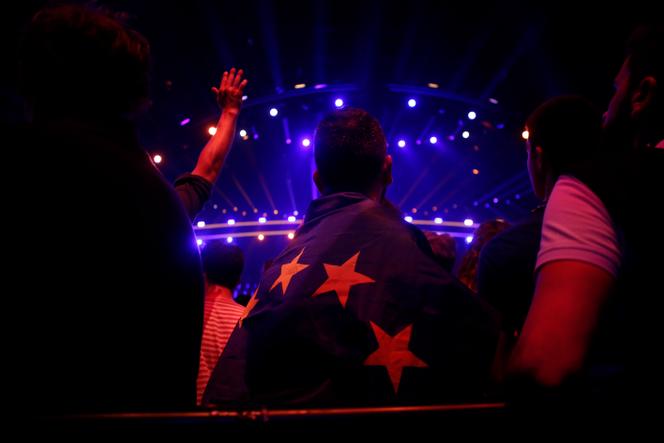


Rarely has the Eurovision Song Contest generated so much controversy. Following protests in Sweden against the participation of Eden Golan, the Israeli candidate in the European telecom contest organized on Saturday, May 11, and the disqualification of the Dutch candidate, Joost Klein, author of the song Europapa following an incident with a cameraman, the contest distinguished itself by banning the European flag from the show. This decision did not go down well in Brussels, where Margaritis Schinas, the Greek Commission vice-president responsible for promoting the European way of life, slammed the contest organizers.
"Eurovision is first and foremost a celebration of European spirit, our diversity and our talent," he said on social media network X. "The European Union flag is the symbol of this. With the European elections less than a month away, there should be no obstacles, big or small, to celebrating what unites all Europeans."
Internet users alerted the European leader, including Moldovan Dorin Frasineanu, former deputy director of the Moldova prime minister's office, who was in Malmö for the event. On X, he said on Saturday evening: "We were just denied entry to Eurovision with the EU flag. We were told by security it's 'political' and 'not allowed'. How could the European Broadcasting Union [EBU] ban the EU flag at Europe's biggest event?"
In Brussels on Monday, the Commission was still reeling from the shock. The blue flag with its twelve golden stars is not only the flag of the EU, displayed in many public places in the 27 member countries, but it is also the flag of the Council of Europe and its 46 members. All of these members, except for Israel, which is only an observer in the institution's parliamentary assembly, are present at Eurovision.
According to the EBU, flag policy is negotiated every year, and for the 2024 edition, the choice was to allow only the flags of the participating states and the rainbow flag, the symbol of the LGBTQ+ community. Above all, the EBU wanted to avoid seeing Palestinian flags in full bloom. "There was no explicit intention to ban the European flag," the EBU explained to Le Monde. "But owing to the increase in geopolitical tensions, this policy of verifying flags has been applied with greater zeal."
"It's precisely when the geopolitical situation is complicated that we need to uphold our values, the values of freedom, cultural diversity and understanding between peoples," said Commission spokesman Eric Mamer. "I don't think this is the right time to prevent people from expressing their values by flying the European flag, for example."
You have 14.81% of this article left to read. The rest is for subscribers only.
